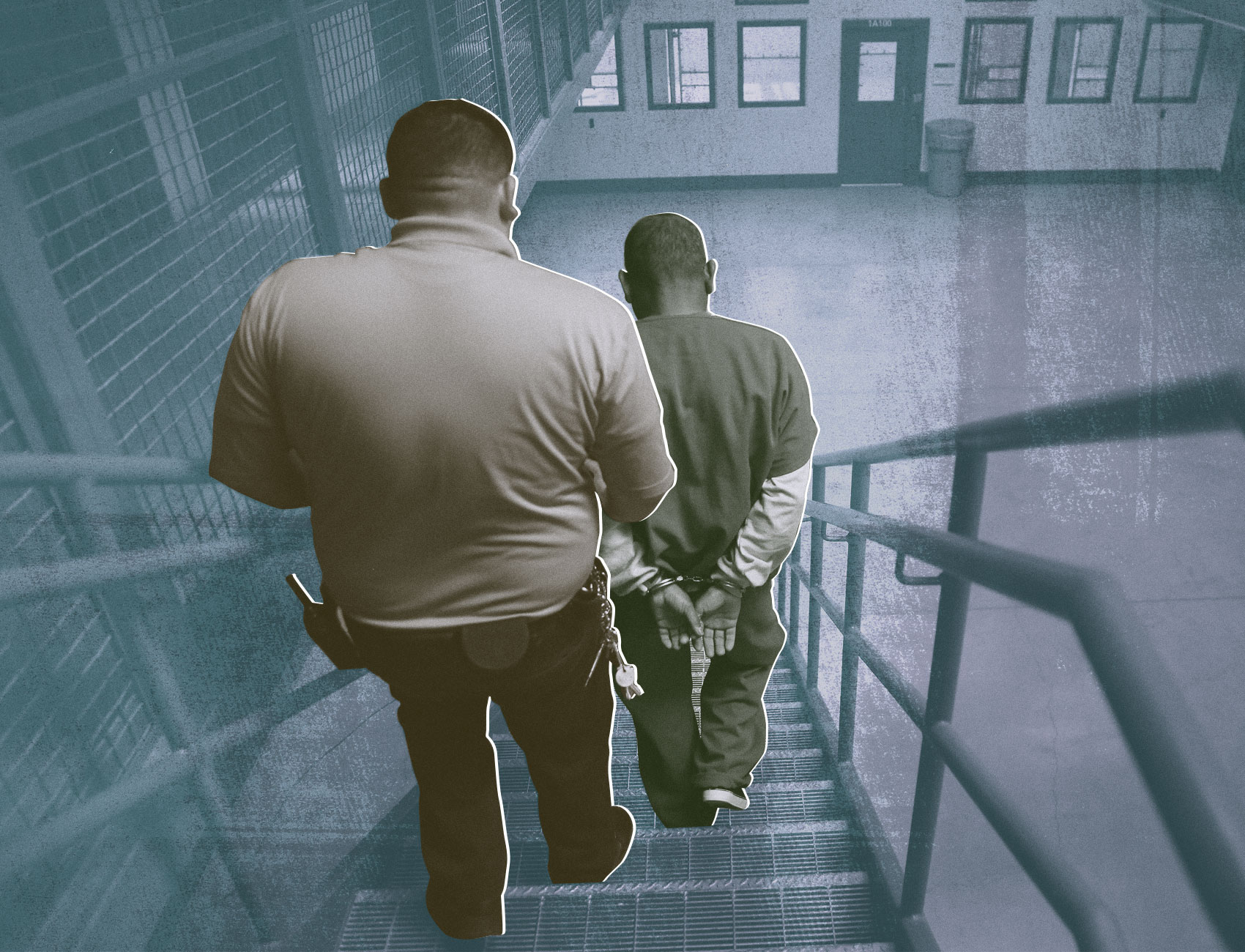Georgia Budget Cuts Threaten Prisoners’ Ability To Challenge Convictions
Citing the pandemic, state legislators asked all agencies to trim their budgets. The cuts could eliminate positions for public defenders who can show a trial or sentence was unjust, overturn convictions, or reduce a person’s time.

Proposed budget cuts to the Georgia public defender system could threaten the ability of prisoners to challenge their convictions.
“My office may cease in its capacity to meet its duties to clients and the courts as soon as next month,” Brandon A. Bullard, the director of the Office of the Appellate Defender, warned in a letter to the Georgia Supreme Court chief justice.
“I am ashamed to tell the Court that we may not be able to meet our obligations, and even more so that I cannot say specifically how the Council intends to meet its obligations under the Indigent Defense Act,” he wrote in the June 22 letter. The Indigent Defense Act of 2003 established the Georgia Public Defender Council, the state’s public defender system that represents people at trial and on appeal who cannot afford an attorney.
Bullard added that he sent similar letters to each justice on the state Supreme Court, each judge on the Court of Appeals, and each chief Superior Court judge in the circuits where the appellate defender’s office practices.
On May 1, citing the novel coronavirus pandemic, the state House and Senate Appropriations Committee chairpersons and the director of the Office of Planning and Budget sent a memo to state agencies asking them to propose cuts totalling 14 percent of their budget. Then this week, Governor Brian Kemp announced budgets would be cut by 10 percent, the Associated Press reported.
In its response to the legislature’s request, the public defender’s office proposed budgets reflecting a 7, 10, and 14 percent reduction. Both the 10 and 14 percent scenarios included an almost $1 million cut in its appellate services.
The appellate division currently employs 12 full-time attorneys who represent more than 200 incarcerated people, according to the Southern Center for Human Rights, which opposes the cuts. Along with its proposal, the public defender office requested an exemption, claiming that the “budget reduction would serve to arrest this recovery and hinder the agency’s ability to provide essential and statutorily-mandated legal services.”
Prisoners in Georgia have a right to effective counsel both at trial and on direct appeal of their convictions. Appellate courts can consider evidence that shows a trial or sentence was unjust, and overturn a conviction or reduce a person’s time. Since 1989, 38 people in Georgia have been identified as innocent of the crimes they were convicted of, according to the National Registry of Exonerations.
Just last month, the Georgia Supreme Court overturned the conviction of a man who was shackled at trial, finding that, “The appearance of [Esco] Hill in handcuffs, a waist chain, and leg irons throughout his trial undoubtedly reinforced the impression that he was dangerous and framed the lens through which the jurors viewed Hill.”
“We have a very true concern about the possibility of the state moving away from salaried, dedicated attorneys who specialize in appellate defense to part-time contract lawyers who are being paid very small amounts to represent people at one of the most critical points in their lives,” said Atteeyah Hollie, a senior staff attorney with the Southern Center for Human Rights. “They are challenging their conviction and whether they should be free or not in light of potential errors that happened at their trial.”
More than 35 organizations sent a letter to the governor and state assembly, urging them to raise revenue instead of slashing funding. They suggested several ways to increase the government’s coffers, such as eliminating a tax break that tends to benefit wealthier residents and increasing the tax on tobacco products.
“Deep cuts will disproportionately harm communities of color and rural communities and curb the state’s ability to recover,” they wrote. “We cannot cut our way to prosperity and ask that you look to new revenues to avert deep budget cuts that will have generational impacts.”
Georgia lawmakers can also limit tax breaks for corporations, according to Danny Kanso, a policy analyst with the Georgia Budget & Policy Institute, one of the signatories on the letter.
“Our state is offering very unusually generous incentives,” he told The Appeal. “The tax breaks that have been put on the books in recent years and the lion’s share of tax breaks we offer go to specific industries.”
Lawmakers are expected to vote on the budget this week and send it to Governor Kemp for his approval. The budget will take effect on July 1.
The public defenders’ budget has been attacked before, noted Hollie of the Southern Center for Human Rights. In January, even before the pandemic hit, Kemp proposed cutting public defender office funding—and increasing prosecutors’ funds—by more than $3 million.
“This is the latest in a string of recent attempts to reduce the budget of this office that protects such vital constitutional rights,” Hollie said. “Budget cuts fall on the shoulders of people who have already been cut by budgets their entire lives.”
